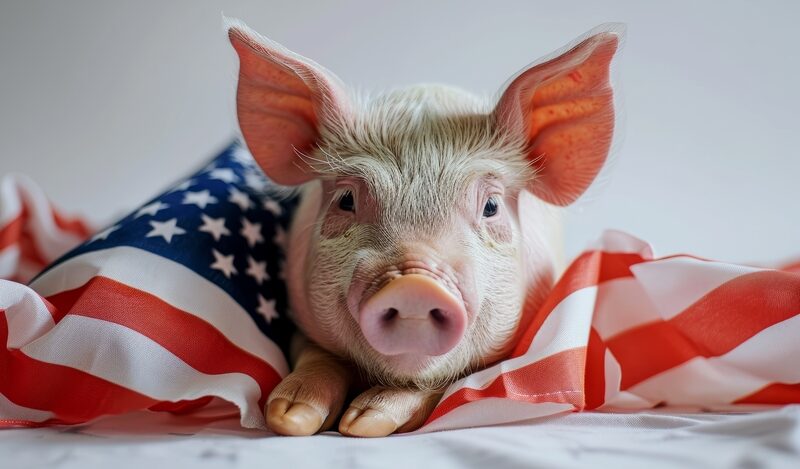
Navigating Laws Across State Lines
The United States is a great place to live – we’ve got 50 states to choose from! While some folks may prefer to stay in their home state, others may venture out for college or job opportunities. Some simply find a place that fits their lifestyle better. It’s a great privilege to have the freedom to choose where we want to live in this big country.
But, you know, it’s not always sunshine and rainbows. We have some challenges on our hands that affect individual states and the nation as a whole. The weather is changing, technology is changing, and everyone has their take on where our country should be heading, and laws in one state may create a predicament for folks living in another.
Hogging the Regulation Spotlight
Take California’s Proposition 12, for example. It’s now a crime to sell whole pork meat in California unless the pig it comes from is born to a sow that was housed within 24 square feet of space and in conditions that allow the sow to turn around without touching an enclosure. Proposition 12 applies to any uncooked pork sold in the state, regardless of whether it was raised in California. It’s a bit of a sticky situation, and some worry that this could set a trend where states start dictating the rules on farming practices to each other, ignoring the federal food safety standards. Interstate trade could get a little messy and consumer wallets may feel the pinch.
California isn’t new to the spotlight. In 1967, the Federal Air Quality Act was passed. This allowed California to establish its air quality regulations due to its unique geography, weather, and growing population and vehicle numbers. Now, California has implemented strict emission standards for trucks, specifically for diesel-fueled trucks, hauling cargo to and from their ports. Some states aren’t thrilled about this, feeling like California is flexing too much power.
Plowing Through Policy Predicaments
Agriculture Secretary Tom Vilsack has acknowledged that creating consistent rules is like walking a tightrope. The problem, he said, is that “applying national standards on food would lead to considering national standards for other thorny social issues.” He further said, “I don’t envy Congress in trying to figure this out. However, if they fail to do so, chaos is inevitable.”
Here’s the thing though – The United States Constitution grants individual states the authority to make their laws as a fundamental principle of federalism. This system was designed to address concerns about the concentration of power. It also allows for states to address their unique needs, preferences, and circumstances to make some of their own rules within the bounds of the Constitution. This foundational freedom allows states to make policies that cater to the different communities across the nation.
It will be interesting to observe how our nation tackles the emerging challenges affecting interstate and potentially international trade. In the end, while challenges may arise, the beauty of our nation lies in its ability to navigate these complexities.

